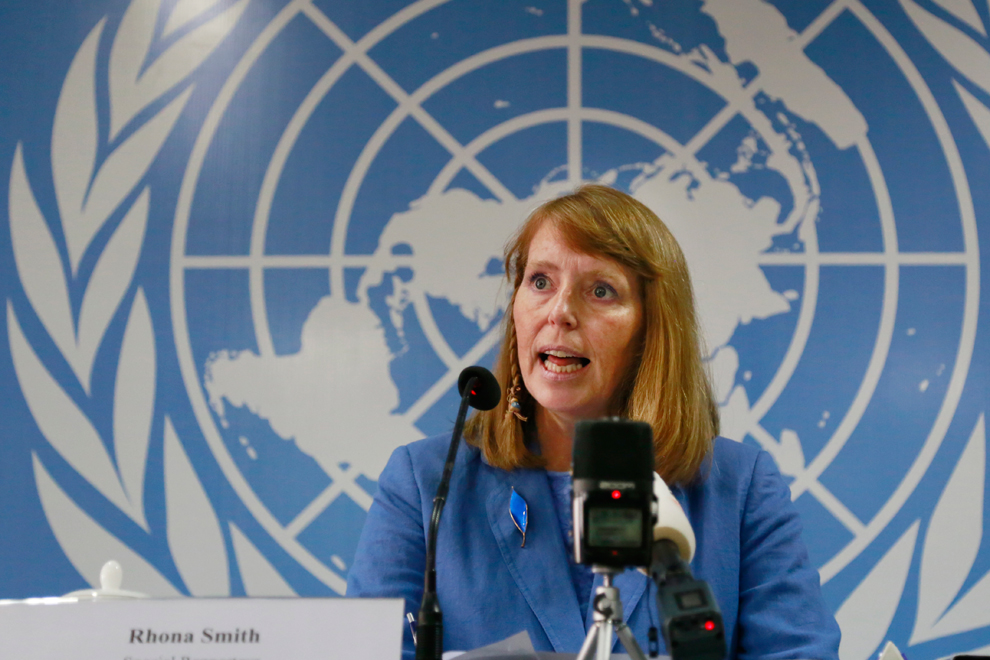
Rhona Smith, the UN Human Rights Council’s (UNHRC) Special Rapporteur on Human Rights in Cambodia held a press conference yesterday. Heng Chivoan
Rhona Smith, the UN Human Rights Council’s (UNHRC) Special Rapporteur on Human Rights in Cambodia completed her seventh mission to the Kingdom on Thursday after meeting ministers and senior government officials to discuss human rights and sustainable development in the Kingdom.
Smith issued a statement on the conclusion of her over 11-day visit saying that as well as meeting with the government, she also met with other relevant parties including members of the public, representatives of civil society, the diplomatic community and UN teams in Cambodia.
“I have now completed my seventh mission in my capacity as UN Special Rapporteur on the situation of human rights in Cambodia. I would like to thank the government for its invitation to visit and the willingness of so many state officials to meet many state officials to meet with me."
“I have been particularly attentive to the general narrative on human rights and human rights advocacy. In that respect, I regret that working and advocating for the promotion and protection of human rights continues to be equated with supporting, the political opposition,” Smith said.
She said she remained concerned that pressure on former members of the Supreme Court-dissolved Cambodia National Rescue Party appears to continue unabated.
“In all countries, human rights issues may be politically sensitive, and political and civil rights are by essence related to the political space. In the same spirit, I reiterate my encouragement to the government, in particular at the sub-national level, to strengthen respect for the freedom to peaceful assembly,” she said.
She acknowledged that gatherings pertaining to land disputes, in particular communities locked in them coming to the capital to petition the relevant authorities, were allowed to take place.
But she also noted that permission for recent marches on Human Rights Day were refused on grounds of potential disruption to traffic.
“I recall that the Implementation Guide to the Law on Peaceful Demonstration indicates that disruption to traffic is not normally a ground to refuse a request to march,” she said.
Smith also welcomed last November’s royal pardons that saw the release of opposition figures.
“I note the amendment passed to the Law on Political Parties last December, allowing for individuals previously banned from political activities by the Supreme Court to request the restoration of their rights by the King as per a request from the Prime Minister,” she said.
She also noted that nine of the 118 people who had been banned had used such provisions under the amended law and received rehabilitation.
Ministry of Justice spokesperson Kim Santepheap said all action taken by the courts was purely the enforcement of the law against politicians who had committed crimes.
“Can Cambodia be a country that upholds the rule of law without impunity if the courts acquit politicians who commit crimes but not ordinary citizens who do the same?"
“I have only this answer – Don’t allow the courts to be taken hostage by politicians. The courts enforce the law against those who commit crimes. Every person who breaks the law falls equally under the jurisdiction of the courts.”









